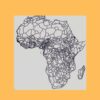Followed by Sudanese in The Hague and in refugees’ camps near Darfur, offering finally “some relief” to the victims, the judgement handed down on Monday 6 October 2025 by the International Criminal Court (ICC) against Ali Muhammad Ali Abd-Al-Rahman, alias Ali Kushayb, remains an isolated act of justice.
By Margherita Capacci (our correspondent in The Hague)
This marks the first conviction in the first and only trial for crimes committed in Sudan at the Hague-based Court. On Monday, October 6, the International Criminal Court (ICC) found Janjaweed militia leader known as Ali Kushayb guilty of crimes against humanity and war crimes committed during the conflict in Darfur more than 20 years ago.
“This is the day the victims finally find some relief”, said Mohamed, speaking to Justice Info after the verdict. He was one of the around 30 members of the Sudanese and Darfuri civil society living in the Netherlands and the United Kingdom attending the hearing. Despite coming two decades later, he thinks it is “better late than never, people were looking for that and they are very pleased”.
Standing in front of a public gallery filled almost to its maximum capacity with Sudanese nationals, ICC officials, diplomats and journalists, and of defence and prosecution teams, Ali Muhammad Ali Abd-Al-Rahman listened to the judge reading his conviction. He was found unanimously guilty of numerous crimes, including rape, torture, murder and persecution on political, ethnic and gender grounds, committed between August 2003 and March 2004 in Darfur. “The accused played an active role” in the commission of the crimes, said presiding judge Joanna Korner. The judges were also “convinced beyond a reasonable doubt that the accused was the man who bore the nickname ‘Ali Kushayb’”, which the defence had strongly argued against from the start. Korner said that he had a leadership role in the Janjaweed militia and good relations with local authorities and the government of Sudan, especially with Minister of Interior Ahmad Muhammad Harun, who is subject to an ICC arrest warrant, who supplied him and the militia with weapons and money.
His sentence will be determined at a later date.
THE ETHNIC DIMENSION OF THE CONFLICT
The conflict in Darfur erupted in 2003 when mostly non-Arabs rebelled against the Khartoum government, accusing it of marginalising them. The government mobilised, funded and armed mostly Arab militias, the Janjaweed, to counter the revolt. The government’s plan shows the “ethnic dimension” of the conflict, according to the judges, as “entire communities of the Fur, Zaghawa and Masalit [tribes] were to be targeted and attacked”, all perceived as the enemy. In 2010, the United Nations estimated that some 300,000 people had died and 2.7 million had been displaced since the start of the conflict. The U.S. and human rights groups said it amounted to genocide.
The trial started three years ago, after Ali Kushayb, now 77 years old, surrendered himself in the Central African Republic in 2020. It is the only trial in the situation in Darfur, referred to the ICC by the United Nations Security Council in March 2005. Several other arrest warrants for government top-level officials, including former Minister of Interior, former special presidential representative in Darfur Abdel Raheem Muhammad Hussein, and former president of Sudan Omar al-Bashir, have never been executed.
Since April 2023, another civil war between the Sudanese Armed Forces and the paramilitary Rapid Support Forces, which is considered to have grown out of the Janjaweed militias, has devastated Sudan and especially Darfur, with new attacks on civilians, killings and rape, and 24.6 million people plunged into hunger, according to the World Food Programme.
“This verdict sets a precedent in the case of Darfur”, comments Niemat Ahmadi, Founder and president of Darfur Women Action Group. “It sets the foundation for other cases to be brought forward; it sends a strong message to perpetrators of either the past or present crimes that one day they will be held accountable”.
THE ICC ALONE
Far from The Hague, a few hundred Darfuri could follow the judgment. Five screenings were held in displaced persons camps with more than 300 persons, according to the ICC outreach program, which adds that one screening in Uganda saw 30 civil society representatives attending.
Ahmadi says the “ICC is the only real international mechanism that is currently actively addressing the situation in Darfur”, as there is no peace deal or any civilian protection measure. And people are hopeful it will go after other perpetrators. “Even though people are distracted by the humanitarian and civilian protection crisis on the ground”, she adds that they “followed the judgment with greater interest and eagerness”.
In a statement reacting to the verdict on October 6, Yaqoub Mohammed Abdullah of the General Coordinator of Camps for Displaced Persons and Refugees of Sudan, wrote that “this conviction is not the end of the road, but rather a first step towards achieving full justice by handing over all those wanted by the International Criminal Court”.
This article was first published by Justice Info:

